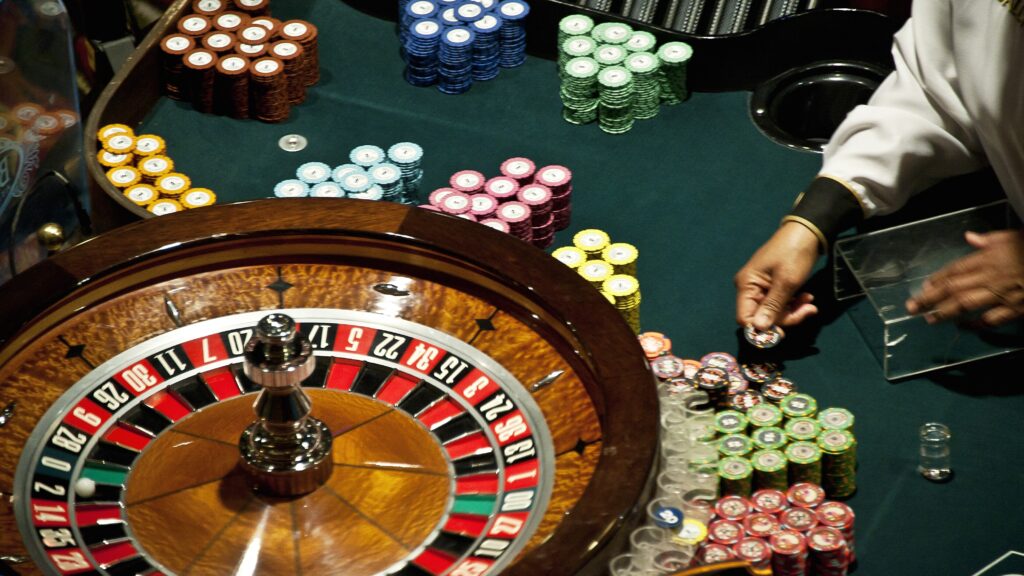
Military service members charged at least $500,000 on gambling, drinking, nightclubs and online games to their government travel charge cards in recent months without triggering alarms among finance officials, an inspector general report found.
The report, “Audit of the DoD Government Travel Charge Card Program: The Visa IntelliLink Compliance Management System,” tracked not only authorized expenditures using government travel charge cards, but also abuses of the cards, with service members spending large sums of money, including on major holidays. The investigation found that the Department of Defense did not utilize its watchdog program enough, allowing fraud and unauthorized spending by service members. Some instances involved minor cases of abuse, while other military personnel took advantage of a lack of oversight to carry out severe acts of fraud.
One Air Force cardholder, investigators found, managed to use his card for a five-month gambling spree that went undetected by their base finance office or their commander.
On April 22, 2023, the Air Force cardholder took out $200 — plus a $7.95 service charge — at a casino ATM at Grand Harbor Maryland, a Marriott-owned casino about 10 miles from the Pentagon outside Washington, D.C. Later the same day, they took out another $200, with another $7.95 charge on top — the first two of more than 20 withdrawals at the casino by the Airman that travel card system failed to notice.
ATMs in casinos are generally flagged by the Government Travel Card system’s watchdog, known as the Visa Intellilink Compliance Management, or VICM system. Among “high risk merchants” that the VICM looks for are ATMs owned by companies that operate cash machines in casinos.But as the Maryland airman began financing a good run of bad luck with their travel card in early 2023, the company behind the Grand Harbor ATM had just changed its name from Global Cash Access to the more mundane Everi. The VICM system had not updated to match that change. Four days later, on a Wednesday, the airman was back at the casino, trying to withdraw $300 and then just $200 on their travel card, but both requests were declined.
The next Saturday, however, the airman’s luck changed, at least at the cash machine. On April 29, the Airman charged the card for $400 in cash. The next Friday, they took $500; a second attempt to get another $500 was declined. The following Monday, they were back for yet another $500. Then a few days later, it was $1,500 in cash charges, and then another $1,000 over the next week to close out May. In June, the airman had charged $2,267 against the card, $3,700 in July and $1,900 in August. This was all before investigators brought the airman to the attention of his finance officials and commander. Including ATM fees, the Airman charged $10,633 in 21 withdrawals at National Harbor and two at other Maryland casinos.
The Airman, the IG report said, was given an Article 15, or nonjudicial punishment under the Uniform Code of Military Justice. The $10,633 in casino withdrawal were the most egregious example IG investigators found of undetected GTC abuse in 2023 and early 2024, but far from the only ones.
In fact, service members carried out approximately half a billion dollars in expenditures that don’t fit authorized spending. Military members hold about 2.3 million travel cards, and spent about $6.4 billion in 24 million transactions in the 2023 fiscal year, the vast majority of which were authorized on-duty expenses. Generally, military members are required to pay for all on-duty travel expenses — think hotels, rental cars, food, etc. — with their GTC. Cash withdrawals are allowed.
Still, the IG found 11,000 charges totaling roughly $500,000 slipped past monitors, ranging from buying drinks at a bar during the Super Bowl to online gaming to cash withdrawals for gambling like the Maryland airman.
The IG also highlighted 7,805 “high risk” merchants that had not been spotted. Much of the abuse was attributed to a lack of oversight by authorities, while allowed for a proliferation of fraudulent or unauthorized expenditures.
A large chunk of those unauthorized purchases were predictable by a calendar. Troops spent $112,485 at “Bar, Lounge, Disco, Nightclub, Tavern-Alcoholic Drinks” on just a handful of holidays and sporting events. About half of that spending came during the 11 major federal holidays, but two sporting events and two well-known party days accounted for nearly as much. The dates of the Super Bowl, a major Ultimate Fighting Championship event, St. Patrick’s Day and Cinco De Mayo each accounted for about 10% of the unauthorized travel card party-spending in 2024.
Though bars and casinos fit the traditional mold of “off-limits” spending for government credit cards, the largest single merchant with unauthorized charges, the IG found, was online. From 2020 to 2024, the IG found, troops spent nearly $150,000 on Google Play apps using their government travel cards.
But while it appears that some troops still occasionally try to gamble, drink and game on the government dime, it’s not like the old days. A 2015 audit, the IG noted, found nearly $1 million in gambling charges and nearly $100,000 at strip clubs.
The latest on Task & Purpose
- Here are the first Army and Marine Corps units heading to the border
- Two officers were fired for bucking their chain of command. Now they’re going to work at the Pentagon.
- Army and Air Force sweep out DEI-coded programs
- Army officers had to write haikus about Pacific theater of World War II during a leadership course
- Army recruits hoping for cav scout or armor jobs will have to wait for boot camp



